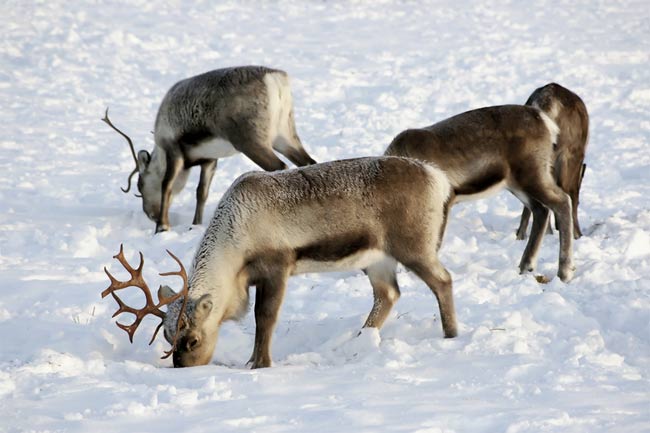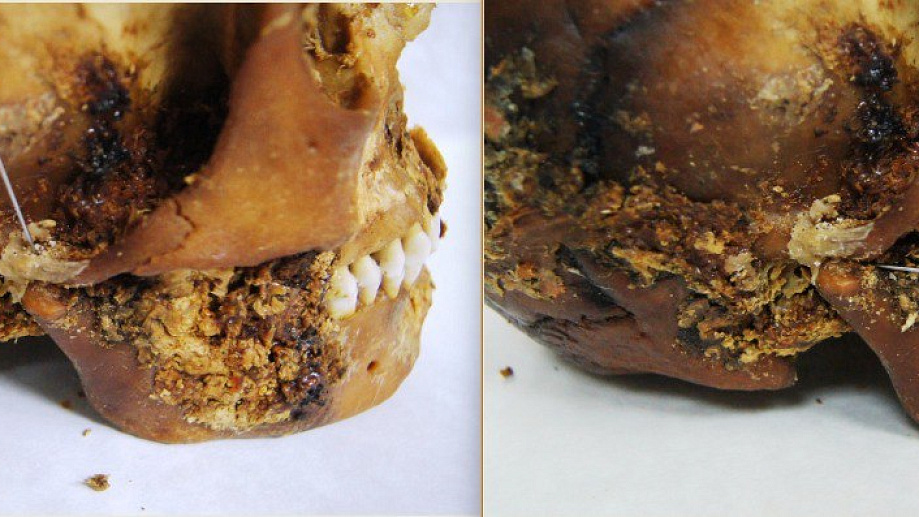Reindeer & Caribou Populations Plunge

Get the world’s most fascinating discoveries delivered straight to your inbox.
You are now subscribed
Your newsletter sign-up was successful
Want to add more newsletters?

Delivered Daily
Daily Newsletter
Sign up for the latest discoveries, groundbreaking research and fascinating breakthroughs that impact you and the wider world direct to your inbox.

Once a week
Life's Little Mysteries
Feed your curiosity with an exclusive mystery every week, solved with science and delivered direct to your inbox before it's seen anywhere else.

Once a week
How It Works
Sign up to our free science & technology newsletter for your weekly fix of fascinating articles, quick quizzes, amazing images, and more

Delivered daily
Space.com Newsletter
Breaking space news, the latest updates on rocket launches, skywatching events and more!

Once a month
Watch This Space
Sign up to our monthly entertainment newsletter to keep up with all our coverage of the latest sci-fi and space movies, tv shows, games and books.

Once a week
Night Sky This Week
Discover this week's must-see night sky events, moon phases, and stunning astrophotos. Sign up for our skywatching newsletter and explore the universe with us!
Join the club
Get full access to premium articles, exclusive features and a growing list of member rewards.
Reindeer and caribou numbers worldwide have plunged nearly 60 percent in the last three decades due to climate change and habitat disturbance caused by humans, a new study finds.
Global warming and industrial development are driving the dramatic decline, said Liv Vors, a Ph.D. student at the University of Alberta who did the study with university biologist Mark Boyce.
"Their future is dubious if climate change and habitat disturbance continue at their current pace," Vors told LiveScience. "We do not know how quickly they can adapt to this changing world."
Reindeer and caribou are two names for the same species. "Generally speaking, caribou are the North American version and reindeer are European," Vors explained. Exact numbers for the creatures are not known, because not enough study has been done. But for those populations that have been studies, the average decline in numbers is 57 percent.
The results come from the first-ever comprehensive census analysis of this species, the researchers said. The findings are detailed in the Global Change Biology Journal. The decline raises serious concerns not only for the animals, but also for people living in northern latitudes who depend on the animals for their livelihood, the scientists say.
What's causing the decline, according to the study:
- Earlier spring green-ups now occur before migrating herds arrive north. This deprives mothers and calves of quality feeding.
- Warmer summers cause more intense insect activity, harassing animals and affecting their feeding.
- The impact of more freezing rain, in place of snow, has negatively impacted lichens that animals feed on during the colder months.
Another scientist warned of the fragility of the caribou and reindeer range last year:
Get the world’s most fascinating discoveries delivered straight to your inbox.
"The caribou is central to the normal function of northern ecosystems," said Justina Ray, executive director of Wildlife Conservation Society-Canada. "With their huge range requirements and need for intact landscapes, these animals are serving as the litmus test for whether we will succeed in taking care of their needs in an area that is under intensifying pressure."
Caribou are vulnerable to a number of threats, including deforestation, natural resource extraction and accompanying road networks, and climate change, Ray and a colleague said last year. In North America, caribou have lost about one-third of their southern range, they said.
Vors said countries where the beasts live need to exercise their authority to protect them.
"This issue is extremely urgent," Vors said. "We have sufficient information about caribou habitat requirements to begin immediately a program of protection and recovery of critical habitat for woodland caribou. Clearly, climate change requires attention as well and the sooner we begin to reduce carbon emissions the more likely we will be able to protect some of the remaining caribou and reindeer herds."
Robert is an independent health and science journalist and writer based in Phoenix, Arizona. He is a former editor-in-chief of Live Science with over 20 years of experience as a reporter and editor. He has worked on websites such as Space.com and Tom's Guide, and is a contributor on Medium, covering how we age and how to optimize the mind and body through time. He has a journalism degree from Humboldt State University in California.
 Live Science Plus
Live Science Plus











